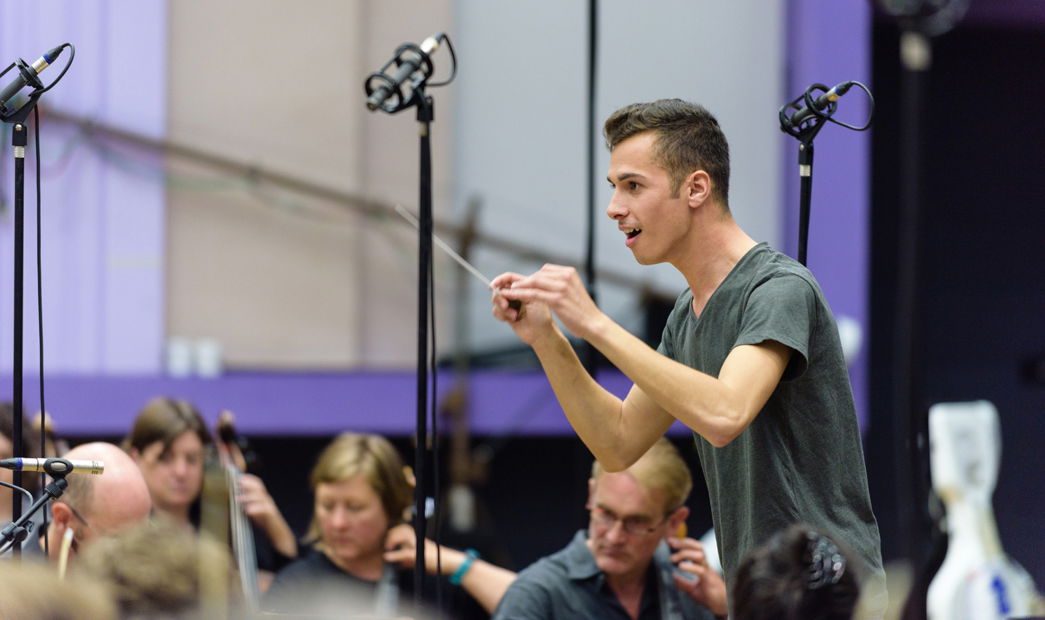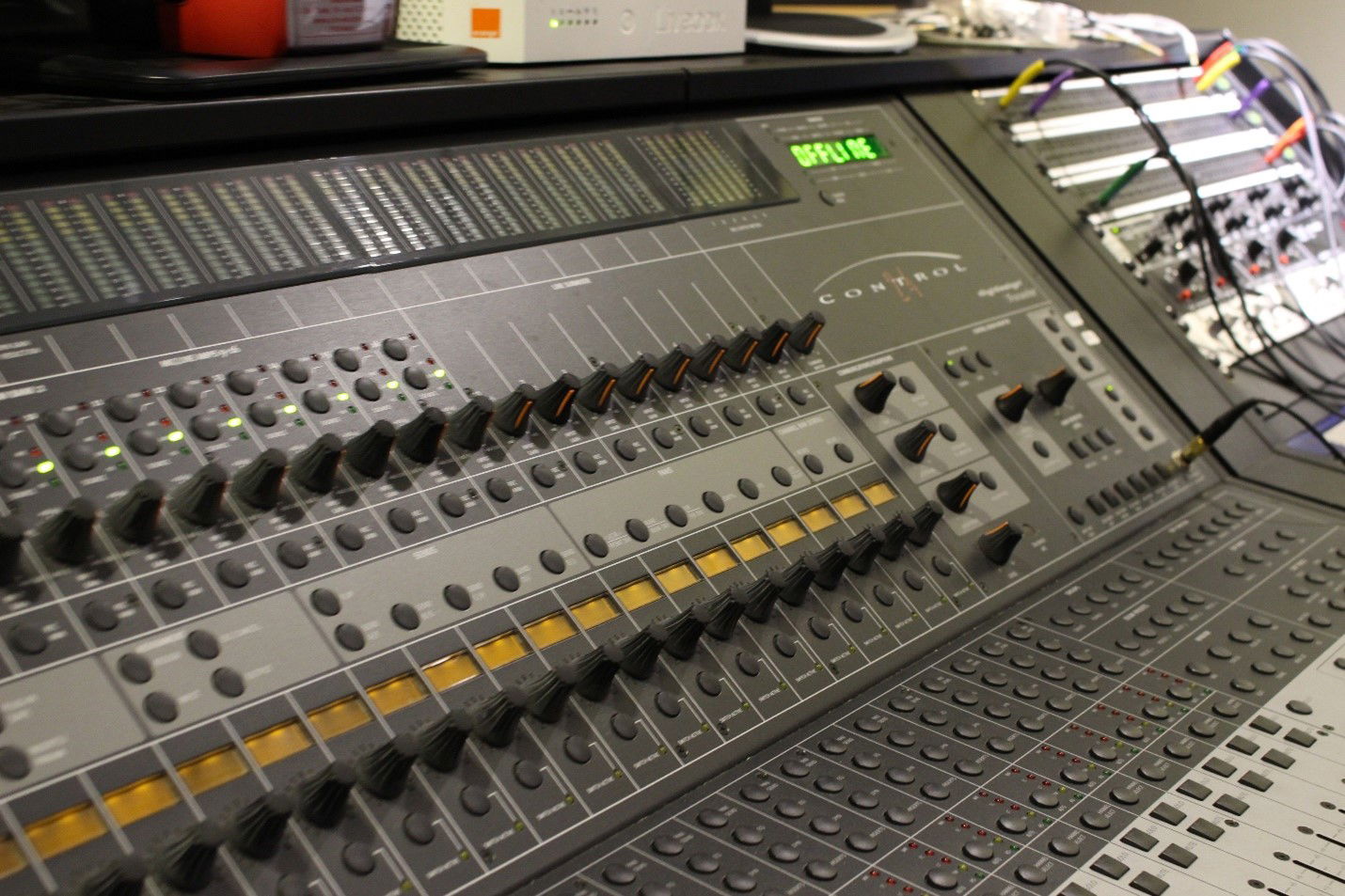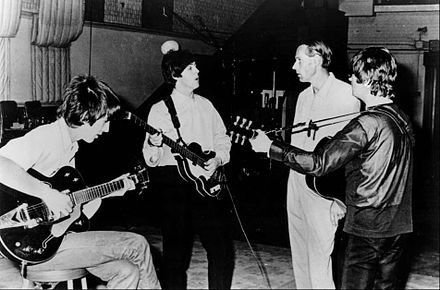The World of Music – Part Two - A Comprehensive Overview

In Part One, we looked at:
- General Considerations – Just some things that all musicians have in common.
- Specific Helps – Some detailed things for different kinds of musicians, focusing on:
- How to Make Art, not just Music
- Tips for Music Writers / Composers
- Rehearsal techniques that will work with a garage band or a full orchestra
(If you missed it, click HERE to see it.) In Part two, we’ll look at recommendations for:
- Lyric Writers
- Arrangers
- Singers
- Performers
- Booking Agents
- Conductors
- Sound Technicians and Recording Engineers
- Non-Sponsored Music Groups
Lyric Writers
1. Poetry usually does not make good lyrics. A poem has its own “music”. Poets work on form, rhyme, meter and other nuances that make the poem stand alone with no need for “outside help”. Don’t ruin it by adding notes.
2. Get a good “Chunk Idea”.
* What do you want to “say”? Will you tell a story? Present a theme? Use a stream of consciousness method?
* Is it a love song? A social comment? A song about cars, nature, God and your relationship to Him? Whatever it is, focus on that. Even better, use just a few examples if you are using full sentences in your lyrics. If you’re using a stream of consciousness style, group the words and phrases by some sort of topic or flow.
3. Use a lyrical hook. Be creative, not corny, unless you’re going for corny. Often, the hook sums up the whole theme of the song. It’s a simple statement or question that draws the listener into the song’s narrative. Use one or two strong words, something extremely poetic or emotionally alluring.
4. Make good word choices (Use a Thesaurus, and a rhyming dictionary)
* Keep them short/understandable as possible. The occasional “educated” word is OK as long as it doesn’t get too deep.
* Keep your meaning clear, even if it’s symbolic or allegorical. If someone is in on the symbolism, they need to get the message clearly.
* Keep word and syllable emphasis consistent with musical emphasis.
* Strive for syllable clarity. (not too many “w”s together or other tongue twisters. E.g., “We won’t want whatever you’re selling”)
5. Keep your singer(s) in mind.
* If you’re writing for children, their range is usually about an octave, starting just below middle C.
* If you’re writing for a worship congregation, most women’s ranges are about the same as a child’s. And most men’s are an octave lower than that.
* Professional singers have a range of two octaves or more, but the trick is knowing where a particular singer’s range lies. For women, a good average range is from the G below middle C to the G just above the staff. For men, it’s an octave lower.
* Watch the use of word parts – vowels and consonants. Don’t use closed vowels (long “e”, short “i”) on high notes. Don’t put too many Ps, Ts, THs or Ds, together. These are just samples, there are more.
6. Organize
* Verse / chorus, etc. The use of a so-called pre-chorus has come into fashion, but it’s been done by those who have never studied music and simple made up a name for a part of the chorus only because it had a somewhat different chord pattern. Learn and use proper terms.
* Rondo
* See the section for Music Writers for more choices

7. Lyrics don’t have to rhyme, but it helps a whole lot. It’s like using a good musical form; it helps the listener hear what you’re saying better, especially if they only get to hear it once. To improve this skill, it would help to study some of the famous poets, such as Frost, Shelley, Shakespeare, or Keats.
Here are a few samples of ways to rhyme your lyrics (silly samples):
* Lines 1 & 2, lines 3 & 4
Way to go
Blow, wind, blow
See the sight
With all your might
* Lines 1 & 3, lines 2 & 4
Hide the pickle
In the jar.
It's so fickle
Near or far.
* Lines 1 & 4, lines 2 & 3 (Somewhat rare but still effective)
Balloons in the sky
Red, white and blue,
Floating for you
Way up high.
* Limerick There once was a runner named Dwight
Who could speed even faster than light.
He set out one day
In a relative way
And returned on the previous night.
There are others, but these are the most common and, therefore, would help your audience hear the words better. Sometimes a performer can mumble a word, or the music balance (like in a concert setting) can be off. If the rhyming is consistent, the listener can sometimes fill in the missing word.
Sometimes, it doesn’t hurt to let the music rhyme instead of the words

Arrangers
1. Know your players’ or singers’ strengths and weaknesses. Write for their range, ability and style. The best way to do this is to hear the group, either live or by way of a recording.
2. Vary which instrument or voice carries the melody. You may have a favorite, but, remember that other people have their favorites as well. I have given solos to baritone horns, vocal basses, and tubas!
3. Vary style of delivery. Don’t forget brass mutes, electric guitar effects, etc. Also, don’t neglect dynamics; sudden changes, especially, can be very effective.
4. Use instruments other than percussion for rhythm. Use syncopation (simple and compound) and counter-rhythms. The same goes for vocal arrangements. Sometimes the arrangement relies on the piano for rhythm when the voices can do it just as well by using percussive “nonsense’ syllables (think doo-bee-doo-bee-doo)
Singers
1. Know your current limits. Don’t ruin your instrument! Here is where taking lessons can be helpful. A professional teacher will be able to help you stretch your range, volume and projection in a healthy way.
2. Strive for improvement. Again, take lessons, workshops, etc. No one knows everything about anything.
3. Avoid foods that give you phlegm (mucous). The two biggest offenders are milk (dairy) and pasta. Other foods that can limit your performance are sugar (especially refined sugar) and sometimes fat (grease, butter, etc.).
4. Maintain good posture. Stand up straight. Imagine that there is a string attached to the very top of your head and someone is pulling you up like a marionette. There should be the maximum distance between your sternum and belly button.
5. BREATHE. Your diaphragm must move in and out. That means that your stomach will have to move in and out because your ribs just can move far enough. You won’t look like you’ve got that slim waist you’ve been working on, but you’ll sound great! Also, inhale through your nose and relax.
6. Sing with conviction. Unless you have a real philosophical or theological problem with a song you’re singing, sing it like you mean it. It will improve your sound!

Performers
Most singers and instrumentalists will be performers of some kind. Prancing around a stage will not always be an option, or even desired. But you must appear professional at all times, before, during and after the concert, musical, etc.
1. Be courteous when you arrive for the concert. Even if it’s a school band concert, you are the guest of whoever is providing the stage (unless you own the club).
2. Be well rehearsed. It’s not enough to run through the songs a few times with everybody else. Your part must be as close to perfect as possible so the performance will be as close to perfect as it can be. DON’T BE THE WEAK LINK in the chain.
3. Have all you “stuff” with you: music, valve oil, music stand (if you’re supposed to supply your own), amps, cords, and anything else that you need to do the job right.
4. Be courteous and helpful to others in the performance. The word here is TEAMWORK.
5. If you do get the chance to do a solo (could be lead singer in a rock band or solo oboist in a concerto), try to engage the audience. You may say you’re singing or playing just for yourself, but it’s nice when someone else appreciates your efforts. My personal take on movement on stage is that it can be exciting but not erotic, loud but not lewd.
6. After the concert, don’t be afraid of the audience, unless you’re extremely popular and are in fear of your life. If they want to talk to you, it’s because they want to let you know that they enjoyed the music. They won’t stay around if they didn’t like it.
7. Clean up after yourself. Take all your “stuff” with you. And if you’re getting paid for the gig, don’t let the manager slip out. Be polite, and firm if need be.
Booking Agents
1. NETWORK! It’s a verb and means meet as many people as you can that hire musicians anywhere near related to the type of client(s) you have. Don’t go looking for just the Big Breaks. There are lots of opportunities for music out there.
2. Be Professional. Make your website, social media platforms, brochures, demos and other market material look as polished as possible. But don’t spend more than you make.
3. When making any sort of contact, be enthusiastic but don’t “Oversell” (lie about) your client. Also, be polite and keep your language clean enough for somebody’s grandmother to hear. You may be talking to one!

Conductors
1. PLEASE – PLEASE – PLEASE learn the proper way to conduct. Waving your arms and pointing at people is NOT what conducting is. Conducting includes, but is not limited to, the following:
* Establishing, maintaining and changing tempo (right hand)
* Cueing entrances, especially the most crucial (left hand)
* Cut-offs (left, right or both, depending on the situation)
* Interpretation of the music and drawing it out of the musicians (done by and large during rehearsals)
* Establishing and maintaining unity and rapport within the group.
2. You too must PRACTICE. If you do not have a regular group to conduct, volunteer to help other conductors during rehearsals. They won’t be real eager to let you help at first, but a short demonstration may do the trick. The local high school band or chorus teacher, college pep band, community chorus or band are all places that might enjoy some help. Some recording studios that still use live instruments may be looking for someone as well, and there may be a few dollars in it, too.
3. When you do have a group to conduct, be VERY prepared. You don’t have to have the score memorized, but be very familiar with it. Sight-reading is only for instrumentalists in a tight spot. Mark the score so that you know exactly where everyone should be going and what they should be doing.

Sound Technicians and Recording Engineers
I won’t take the time to advise you on any technical aspects of your profession. New technologies appear every day. I would encourage you to learn everything you can about your field, even if you don’t currently have the equipment.
1. You and the musicians are making music together. Be musical about what you do. Cool effects are great, but only if the musician wants them. Don’t be afraid to suggest some effects they may not have known about.
2. You may have to introduce some musicians to the world of sound reinforcement or recording. Be prepared to explain simply to them why, for instance, the mic MUST be place at a certain place and you don’t care what they saw in a movie. Be polite but firm. In the end, they will thank you for knowing your stuff.
3. Remember safety. ALWAYS KEEP YOUR EQUIPMENT GROUNDED!! Never cut off a ground tab on a plug. Get rid of the ground hum some other way. Keep cables neatly bundled and/or taped so no-one trips on them. Make sure mic stands are stable.
4. Sorry, you are the hired help. Unless they want a mic in the wrong position or something, generally the musicians rule. If they want the tambourine mic cranked up, Crank It Up. They may change their minds later (and even try to blame you). It’s good to have a Very Relaxed personality in these positions. If it’s hard for you, try herbal tea or something.

Non-Sponsored Music Groups
A non-sponsored group is one that is started by its members and has no other organization above it. School choirs and bands are sponsored; garage rock bands, etc. are not. Chances are, if you’re reading this section, you’re in a non-sponsored group.
I. Organization
A. Choose a leader. Notice the word is Leader, not Dictator. The leader should be responsible for:
1. Overall musical sound
2, Rehearsal scheduling
3. Rehearsing
4. Booking
5. Advertising
6. Equipment acquiring and maintenance
7. Transportation
B. The leader should be able to delegate. Let someone else do numbers 2 through 7. But remember YOU are responsible.
C. The leader should be able to take suggestions and criticism. ALL suggestions should be heard and considered. They all won’t be able to be accepted.
D. The leader should be diplomatic and tactful. The last thing you want is someone walking out right before a big performance over something that could have been avoided.
II. Agree on a vision. This is important for any group, whether it’s a rock band, a jazz trio or a church praise team. You MUST agree up front to all of these things. Otherwise, you may well all be headed in different directions. This vision would include:
A. A style or styles that you will play
B. Where you‘ll play
C. How often and when you’ll play
D. How much (if anything) you’ll charge to play.
E. Who buys what equipment and what happens to it if the band breaks up or one particular person quits.
We hope you have found this series helpful. Please be sure to CONTACT US if you have any questions or suggestions about anything you’ve read here.
Music is a great source of relaxation, a great hobby and a satisfying profession. Whatever form your music takes, I would suggest that you do it whole-heartedly. Otherwise, you will probably be wasting your time and missing out on one of God’s greatest gifts.
Salt Cellar Creations understands the beauty and power that music of all kinds can convey and has a growing library of original works and arrangements for Concert Bands, Choral Groups, String Orchestras, Soloists and Small Groups. There is also a growing catalog of original concert works by John Daniels (the Heart of Salt Cellar Creations) from his touring days. Find out more about all that Salt Cellar Creations has to offer HERE.
SCC can also compose an original piece for you or do a custom arrangement for you. There are two ways that this can be done; one is much more affordable than the other. And SCC is always looking for ideas of pieces to arrange or suggestions for original pieces.
We have sold music not only in the US but in Canada, the United Kingdom, France, Australia, New Zealand, Austria, and Germany. Please visit the WEBSITE or CONTACT US to let us know what we can do for you!